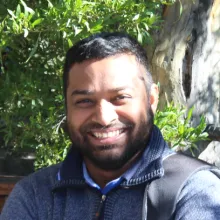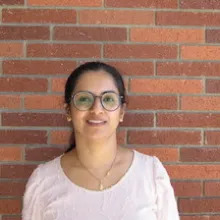
When
Where
Webinar Materials
Webinar recording
Presentation slides
Large-scale Biological Network Analysis Tutorial (ReadTheDocs)
GitHub
About the Webinar
Have you ever gotten stuck trying to load, analyze, and visualize a large gene network (~ 10K+ nodes) using software like Yed or Cytoscape? You aren't alone if you are nodding "yes" right now! In this webinar, presenters Iqbal Hossein and Reetu Tuteja will show you how to analyze and visualize large networks, with the help of a little programming and the Graphviz tool. The Scalable Force Directed Placement (SFDP) algorithm works for creating the layouts for large networks and for manipulating node and edge attributes. Using SFDP, subgraph extraction, plus some dot language, our presenters will use this powerful combination of techniques to enable you to analyze those large networks. Some coding experience in Python is helpful, but even beginners can benefit from this webinar as Iqbal and Reetu will cover some basics of networks, such as what is a network, what about a network makes it difficult to visualize and understand, and how to manipulate, slice, and dice networks in order to analyze large networks. And while this webinar focuses on gene networks, the techniques can be applied to the broader effort of network analysis in general. Join us to see how you can use these resources to overcome past software hurdles to producing visual pictures of your biological network data.
What You'll Learn
- What a biological network is
- Why networks are difficult to visualize and understand
- Powerful combination of tools and techniques to do network analysis
- How to manipulate, slice, and dice networks in order to analyze large networks
Suggested Expertise Level
- Experience using Python programming language
- Familiarity with software like Yed and Cytoscape
- Familiarity with CyVerse VICE apps (containers)
About the Presenters

Iqbal Hossain is a Research Scientist in the Office for Research, Innovation and Impact (RII) at the University of Arizona. Dr. Hossain earned his Ph.D. in Computer Science and Engineering from Bangladesh University of Engineering and Technology (BUET) and completed a postdoc at the Computer Science department at the University of Arizona. His areas of expertise include network analysis and visualization, design and analysis of algorithms, natural language processing (NLP), and machine learning (ML). He is a key analyst at RII on the Institutional Knowledge Map (KMAP) project, which analyzes the research contributions, courses, research areas, awards, grants, collaborations, citations, etc. of the University's myriad educational institutes and visualizes these data in institutional knowledge-graphs.

Reetu Tuteja is a CyVerse science informatician who works with our platforms, developers, and researchers to develop cutting edge scientific workflows and applications in the area of bioinformatics and high-throughput sequence analysis. Reetu also helps to train researchers to use cyberinfrastructure, provides user support and helps improve platforms and services. She earned her Master’s degree in bioinformatics from Banasthali University, India, and her Ph.D in plant sciences and bioinformatics from the National University of Ireland, Galway. As a postdoc in Professor Gloria Coruzzi's lab at New York University, she researched the evolutionary processes that can contribute to the species-specific adaptation in plants and developed data management and analysis systems to infer complex regulatory networks from gene expression and DNA-binding datasets.

